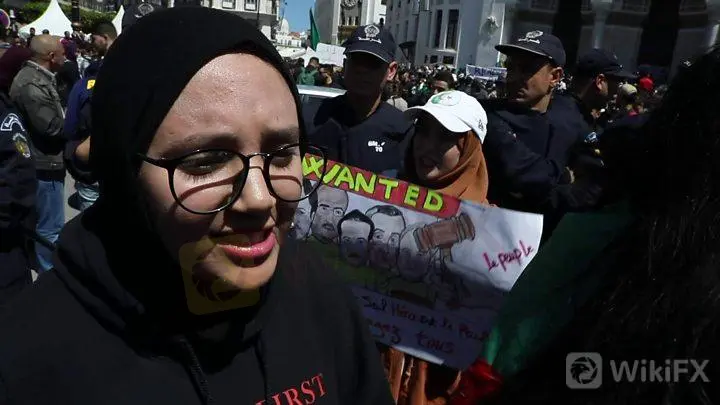简体中文
繁體中文
English
Pусский
日本語
ภาษาไทย
Tiếng Việt
Bahasa Indonesia
Español
हिन्दी
Filippiiniläinen
Français
Deutsch
Português
Türkçe
한국어
العربية
Algeria sets presidential election for 4 July after protests
Abstract:Image copyrightEPAImage caption A protester holds up a poster calling for Mr Bensalah to step down
Image copyrightEPAImage caption
A protester holds up a poster calling for Mr Bensalah to step down
Algeria will hold presidential elections on 4 July, interim leader Abdelkader Bensalah has announced.
It comes after a wave of protests led long-term President Abdelaziz Bouteflika, 82, to resign last week.
Demonstrations continued on Wednesday, with more expected.
The temporary appointment of Mr Bensalah, speaker of the Algerian parliament's upper house, has frustrated some protesters who hoped for more radical change.
Following the announcement, crowds took to the streets of the capital, Algiers, demanding he step down.
Waving goodbye to the only president they ever knew
How Algeria's army sacrificed a president to keep power
Mr Bensalah had pledged to hold free elections within 90 days in line with the country's constitution, but many see the 77-year-old as too close to the former president.
What do protesters want?
Protests started in February with anger focused on the country's ruling elite, not just Mr Bouteflika,
Placards and online posts have been demanding an end to “Le Pouvoir”, or the establishment, meaning that all those around the former president should also go.

Media playback is unsupported on your device
Media captionProtesters say they are getting 'closer' to freedom
About 70% of the country's population is under 30, and youth unemployment is high.
On Wednesday, the country's army chief, Lt Gen Gaid Salah, made his first public address since Mr Bensalah's appointment.
In a televised speech, he cautioned protesters about demands that could undermine the country's constitutional integrity.
He also said the judiciary should investigate “the whole gang” - a term used for the former president's inner circle.
Mr Bouteflika was considered by many as being a front for a group of businessmen, politicians and military officials who were said to really control the country.
Protests so far have largely been peaceful, although tear gas and water cannon were used by security forces on Tuesday and Wednesday.
Disclaimer:
The views in this article only represent the author's personal views, and do not constitute investment advice on this platform. This platform does not guarantee the accuracy, completeness and timeliness of the information in the article, and will not be liable for any loss caused by the use of or reliance on the information in the article.
WikiFX Broker
Latest News
Saxo & Portuguese Bank Partnership
SEC Fines Broker-Dealers $275K for Incomplete SAR Filings
Elon Musk Warns of Imminent US Bankruptcy | Bitcoin Retreats from $100K
UK FCA Fines Barclays £40 Million Over 2008 Deal
WikiEXPO Global Expert Interview: Advanced Practices and Insights in Financial Regulation
Justin Sun Invests $30M in Trump-Backed World Liberty Financial
Lured by False Promises: Malaysian Driver Lost RM218K to an Investment Scam
FTX Sets March 2025 Timeline for Creditor Payouts: What It Means for Investors
What is an Economic Calendar? How it works
Pros & Cons of Automated Forex Trading
Currency Calculator


